 First Time Buyer Heating Guide What You Need to Know
First Time Buyer Heating Guide What You Need to Know
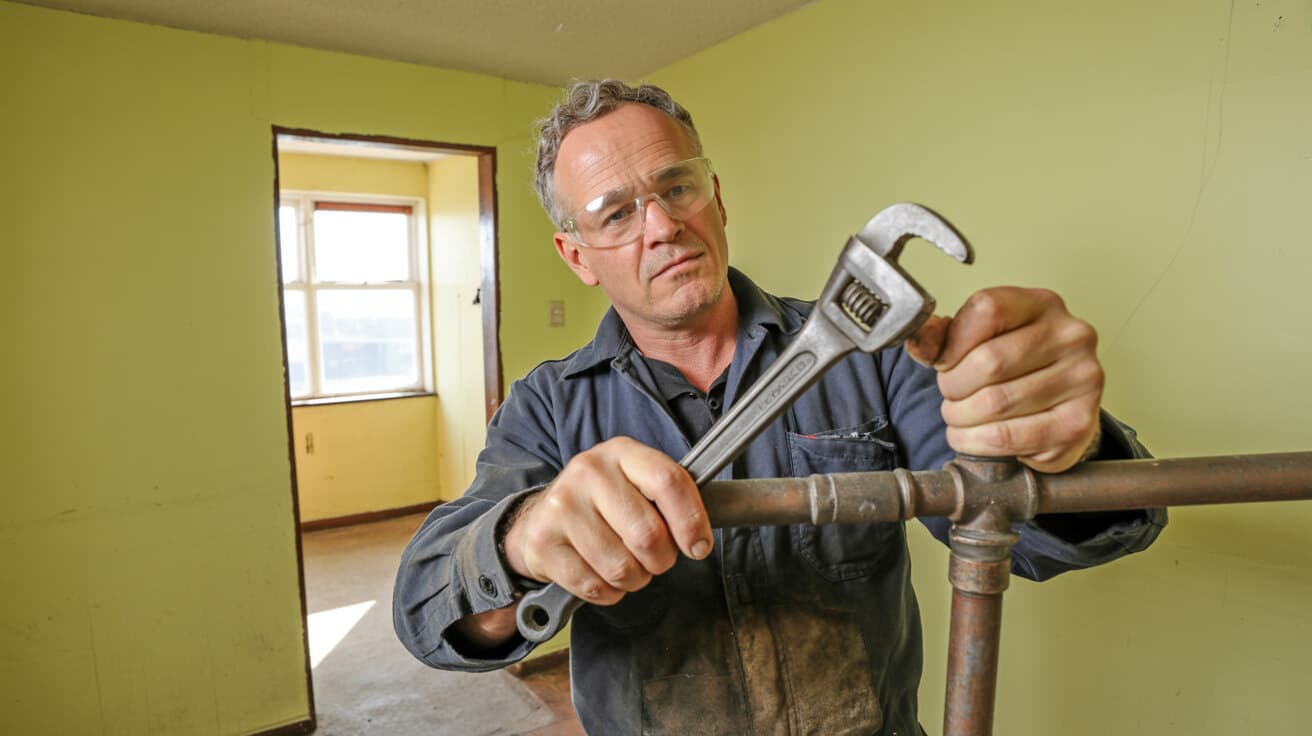
What Should You Know About Your New Home’s Heating System Before You Move In?
Stepping into your first property is an exercise in bold decisions—some visible in fresh paint, others hidden under floorboards and behind cupboard doors. The truth is, your heating system isn’t just one more “tick box” after carpets and Wi-Fi; it’s the backbone of daily comfort and the gatekeeper between control and chaos when temperatures drop. Too many buyers, and even seasoned landlords, trust warm radiators on viewing day—or glossy property specs—without challenging what’s beneath the surface. If you care about cost, compliance, or even resale value, this is the moment to get forensic.
“Confidence on completion day means knowing your heating is safe, documented, and ready—not taking someone else’s word for it.”
Let’s be blunt: heating systems in the UK aren’t all created equal. Old gas combi, brand-new air-source heat pump, electric boiler, mysterious unvented cylinder—what’s installed in your future home determines your bills, your risks, and your freedom to upgrade. Get the specifics wrong, and the first winter could be all about stress calls, warranty arguments, or steep repair bills. It’s even more acute if you’re buying an ex-rental, converted flat, or a property that’s seen several hands over the years.
Your system’s history, documentation, and visible condition aren’t just technical footnotes. They’re the storey of who’s responsible if something fails, who covers the cost, and how much leverage you hold. This guide breaks down:
- The right way to identify what you’re looking at (and why the estate agent’s “it all works” isn’t enough)
- What every buyer, landlord, and manager must demand before completion or let
- How to read, digitise, and secure the paperwork that underpins not just safety—but resale value
- Where hidden costs and time-bombs lurk, from compliance gaps to decaying hardware
- Simple testing and skillful handover routines to get calm, not chaos, on day one
If you take your system seriously before you move in, you won’t be the one picking up the pieces after the first cold snap.
How Do You Identify Your Heating System—and Why Does It Matter?
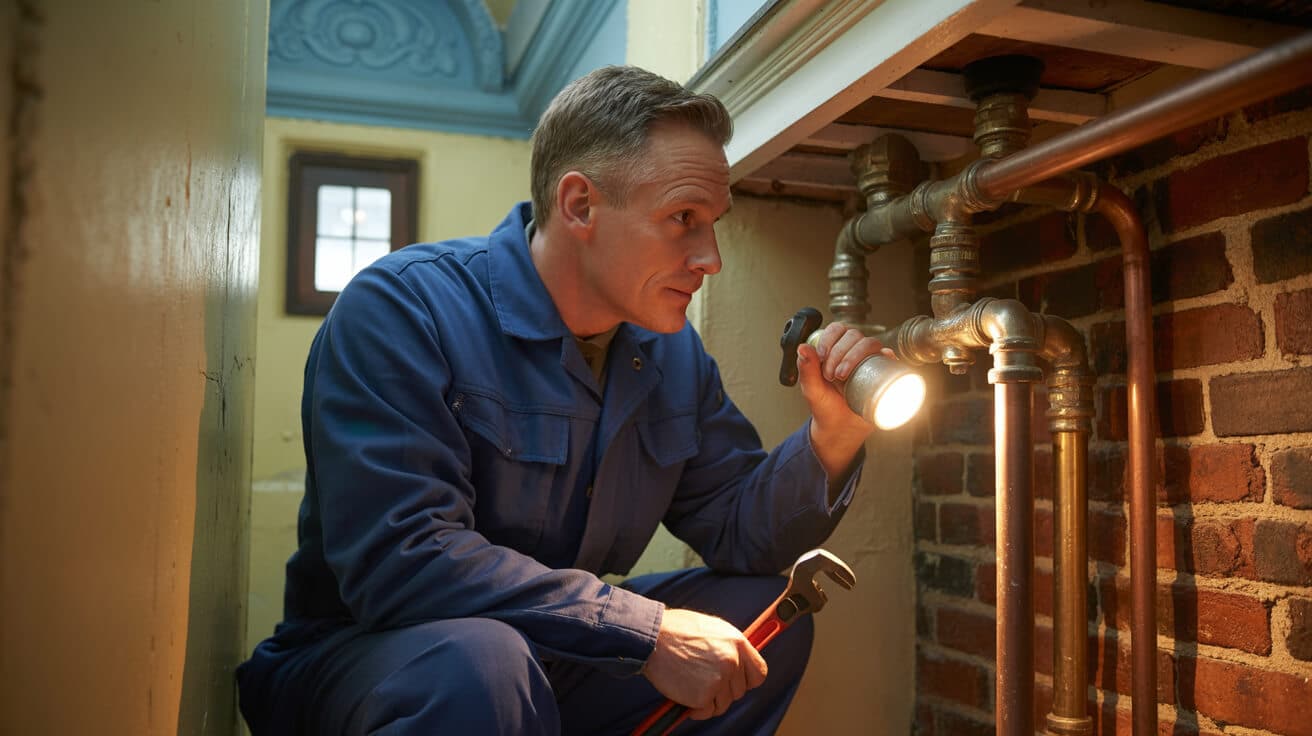
You’d never buy a car without knowing what’s under the bonnet, yet far too many take ownership of a home with only the sketchiest sense of what’s driving warmth, hot water, and ongoing comfort. Don’t let the fact that “it worked on viewing day” lure you into complacency—uncertainty today becomes regret when the first callout sends your inbox or wallet reeling.
The Fastest Path to System Clarity
Don’t guess. Walk through it:
- Spot the core: Wall-hung, insulated units are likely combi or system boilers; a large outdoor unit with chunky pipes means heat pump. Look for unvented cylinders (pressurised tanks), especially in new builds and top-spec conversions—G3 sign-off matters here.
- Fuel check: Gas metre? Usually outside in a secure box. Oil tank? Garden or out-house. Electric boiler or panel? Distinctive digital control panels and less pipework.
- Controls level: Old-school dials mean basics; smart thermostats (Hive, Nest, Tado) are an upgrade you want details of—especially the app login!
- Radiator reality: TRVs (little numbered valves at the base) mean efficiency. No TRVs? Prepare for clunkier control and possible upgrade costs.
Never rely on an estate agent’s or seller’s description alone—always identify equipment by make and model, and ask for the instal date.
Documentation Discovery—Don’t Move Without Proof
Documented heating systems are defendable; undocumented ones put you at risk.
- Benchmark book: The holy grail for all boilers fitted post-1999—usually found near the boiler. Skim for annual stamps.
- G3 paperwork: Unvented cylinder? Non-negotiable G3 certificate is needed. No paper? Budget in a professional recertification.
- Service logs: Three years is ideal. If you see only this year’s receipt, it’s better than nothing.
- Smart control paperwork: Needed if you want remote access or claims for certain energy products.
If papers are missing or vague, don’t panic—use this fact to negotiate price or demand a fresh safety check before keys change hands.
Why System Clarity Pays Dividends
- Insurer & lender demand: Increasingly, they’ll request certs and recent service history.
- Running cost impact: Ancient boilers balloon bills; know the age before you buy.
- Upgrade options: grant eligibility and warranty status may hinge on having the right paperwork.
Knowing what you own is the first move in controlling costs, risk, and future improvement.
What Are the Key Safety and Compliance Checks Before You Move In?

Heating blunders don’t discriminate—buyers, landlords, letting agents, and property managers will all be blamed when something fails. “It passed last year’s test” is no defence if crucial checks are ignored on move-in.
The Safety Controls You Need—Now, Not Later
- Tested carbon monoxide alarms: legally required for any system burning gas, oil, or solid fuel. Check not just presence, but operation. Press “test”; never move in on trust alone.
- Visual check under operation: Power the heating. Any flashing code, odd noises, rust around joints, or yellow pilot lights? These are “fix me now” signals.
- Emergency shut-offs: Find and practice using the gas metre isolation and water stopcock. In a true emergency, “I’ll Google it” won’t cut it.
Compliance Paperwork—Your Leverage and Protection
- CP12 Gas Safety Certificate: This is your lifeline—mandatory in lets, wise everywhere. Without it, insurers or councils can refuse claims.
- G3 certificate for unvented systems: If your home has a pressurised cylinder, this document ensures safe instal. No paperwork? Risk of harm (and honestly, higher premiums).
- WRAS approval: Less known, but essential. You’ll need this to prove correct, hygienic fittings if water quality or contamination is challenged.
Missing any piece means bargaining power—before completion or let. You can pause, reduce price, or demand the right checks are made first.
Which Service Records Should First-Time Buyers (and Landlords) Request, and Why?
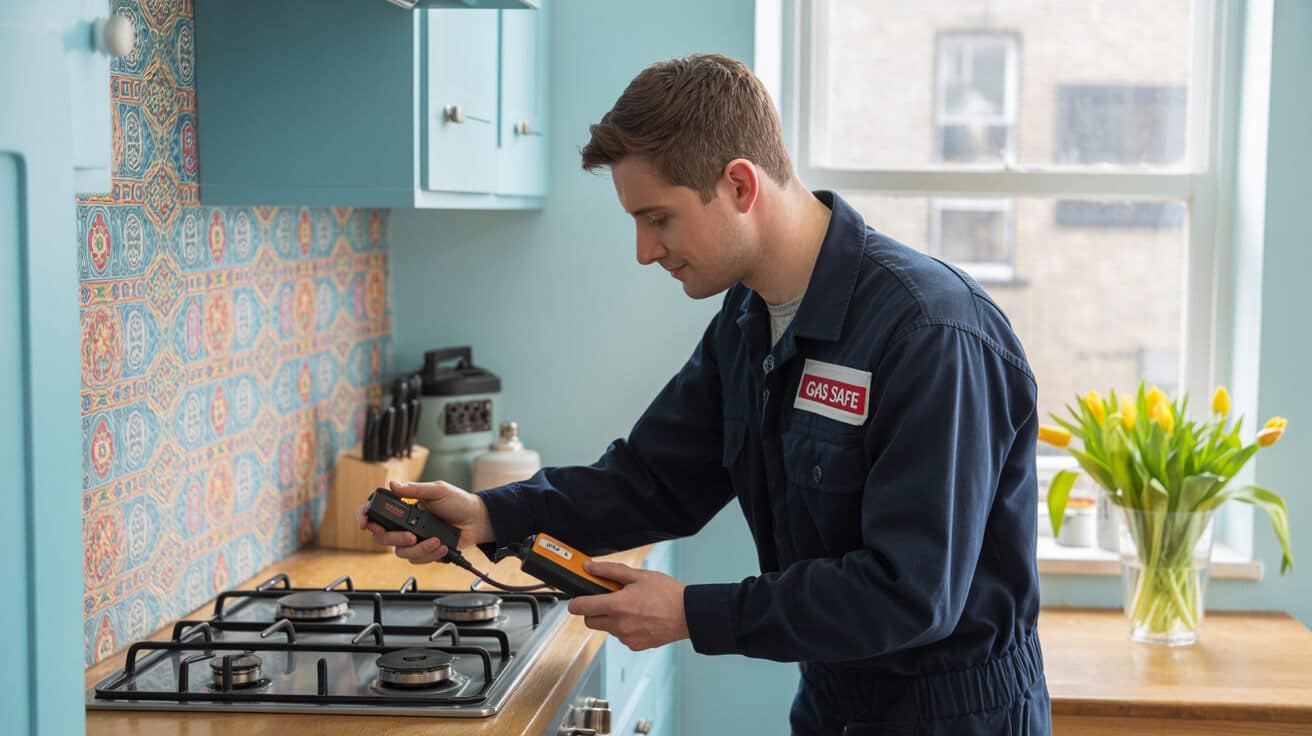
Let’s strip away wishful thinking: “It works now” is meaningless without proof. Service records are your force field—against breakdowns, expensive fixes, compliance headaches, and warranty disputes.
At Minimum, You Should Demand
- At least one annual service receipt per year since the last big change
- Boiler benchmark book, up to date, for post-1999 instals
- G3 paperwork for any unvented cylinder—plus last service date
- Smart control installation documents (app instructions, too, if present)
“A clear service file isn’t just for show—it covers you if warranty claims or future insurance issues arise, making later disputes easier to resolve.”
The Power of Full Documentation
- Ongoing warranty: Brands often require proof of annual services for warranty. No records? You might inherit a bill with your new keys.
- Proof of care: No logbook or receipts? You risk denied claims, lost landlord protection, or higher upgrade costs later.
- Smart controls: Don’t settle for “they work”—you want the app details, installer info, and actual ownership transferred.
Go Digital, Go Safe
- Photograph every receipt and logbook, plus the boiler’s serial number and plate.
- Store in cloud or email—physical files get lost.
- Set calendar reminders for services, philtre changes, and safety reviews.
Proper paperwork saves real money and stress—don’t settle for less.
How Should You Test and Familiarise Yourself With the Heating System After Move-In?

Nobody wants to discover a cold radiator or faulty thermostat once the weather’s turned. First-time buyers and landlords alike earn their stripes by knowing how their new system responds under pressure. Hands-on means more than pressing “ON”—it’s about direct confidence and catching small problems before they balloon.
Take Back Control in Three Moves
- Isolation points: Find your water stopcock and gas shut-off. Practice stopping the supply—don’t wait till panic mode.
- Test every control: Toggle all room thermostats (manual and app-based ones). Test every zone (central heating, hot water)—watch for errors or missed rooms.
- Full heat-up test: With both hot water and heating on, check each radiator, tap, and cylinder. Cold patches, odd noises, or slow warm-up = investigation needed.
“Small warning signs—odd noises, flashing lights, struggling room stats—are often the only clues you get before a breakdown.”
Bleed and Balance
Radiators cold at one end or “knocking” likely need air releasing. Use a radiator key—never bodge with pliers. Monitor the boiler pressure after; top up to 1–1.5 bar if needed.
Professional Baseline Service—No Shortcuts
If anything doesn’t add up—missing docs, stubborn errors, mysterious fittings—bring in the experts. For gas, only appoint a Gas Safe engineer; unvented cylinders mean G3 certified pros. This gives you a fresh start, baseline documentation, and hands-on tuition for your controls.
Starting your personal “system log”—performance notes, service dates, and photos—builds a foundation for every repair, upgrade, or future handover.
What Are Typical Heating Costs and How Can You Keep Energy Bills Under Control?
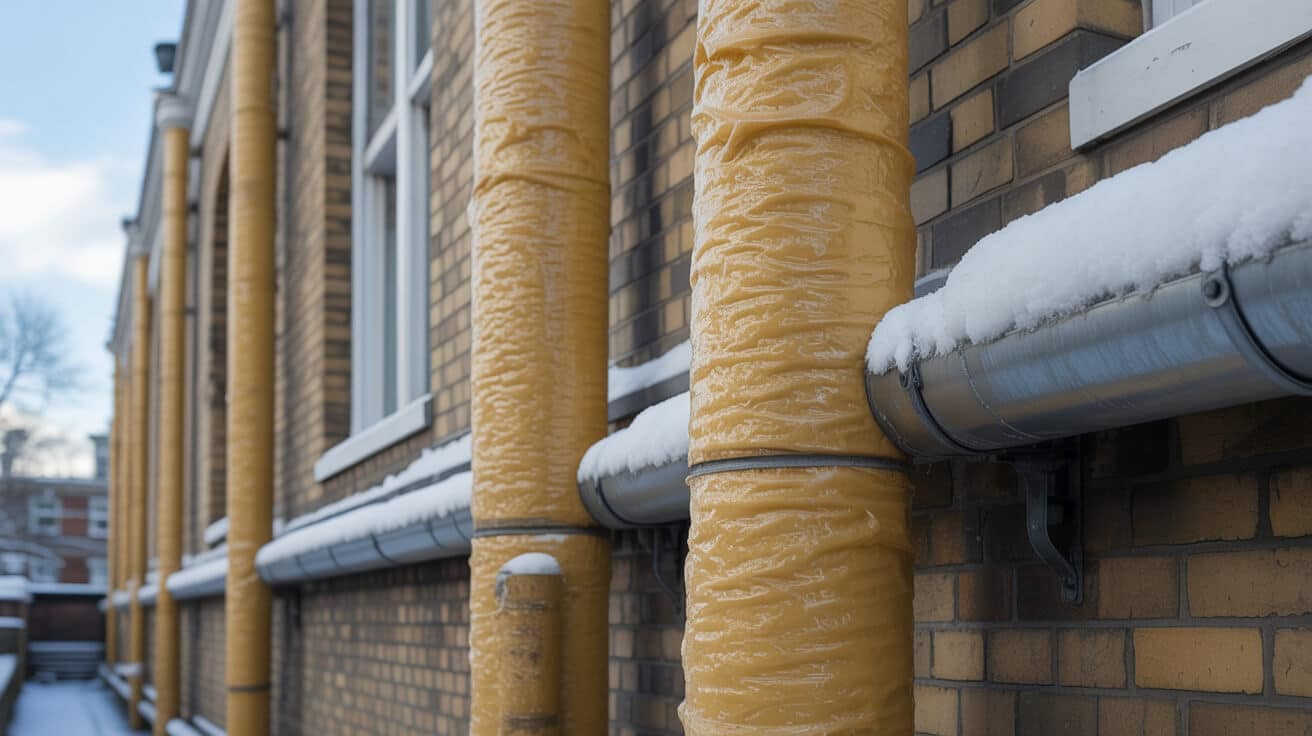
First-time buyers are often shocked by their first year’s energy bills. Landlords, too, see cost shocks after tenant turnover or new instals. Heating takes a bigger slice of the household budget than any other system. Early control is recurring profit.
“Optimising your controls, zone settings, and insulation doesn’t just lower bills—it raises your Energy Performance Certificate score and creates real resale value.”
Average Annual Heating Costs (UK)
| System | Typical Annual Cost | Peak Cases |
|---|---|---|
| gas central heating | £800–£1,200 | Older homes: £1,500+ |
| Electric systems | £1,500–£2,200 | Poorly insulated |
| Oil/LPG | £1,200+ | Large/rural: £2,000+ |
These numbers assume standard usage and decent maintenance; old, neglected, or poorly programmed systems almost always push costs higher.
annual servicing is a “hidden” bill—£70–£200—but skipping it increases the chances you’ll see £1,000+ repair bills later.
Where the Real Savings Live
- Smart thermostats: Scheduling can cut bills 10–15% (Energy Saving Trust). Digital TRVs and thermostatic mixing valves bring extra gains.
- Routine checks: Bleed radiators, balance the system, and check boiler pressure to keep every calorie working for you.
- Plan ahead: Budget a “contingency pot” for the first year. Repairs or part replacements are inevitable, not optional.
Upgrades: When and Why to Invest
- Replace pre-2005 boilers with modern condensing units as soon as possible; savings and peace of mind aren’t subtle.
- Dysfunctional controls or radiators drag efficiency down—upgrade to programmable or smart systems when possible.
- Don’t neglect insulation—a weak link in loft or pipework kills even the best systems’ returns.
A robust, tracked routine means you never take a hit from “surprise” bills or unexpected breakdowns.
Which Upgrades, Repairs, and Grants Should First-Time Buyers Consider?
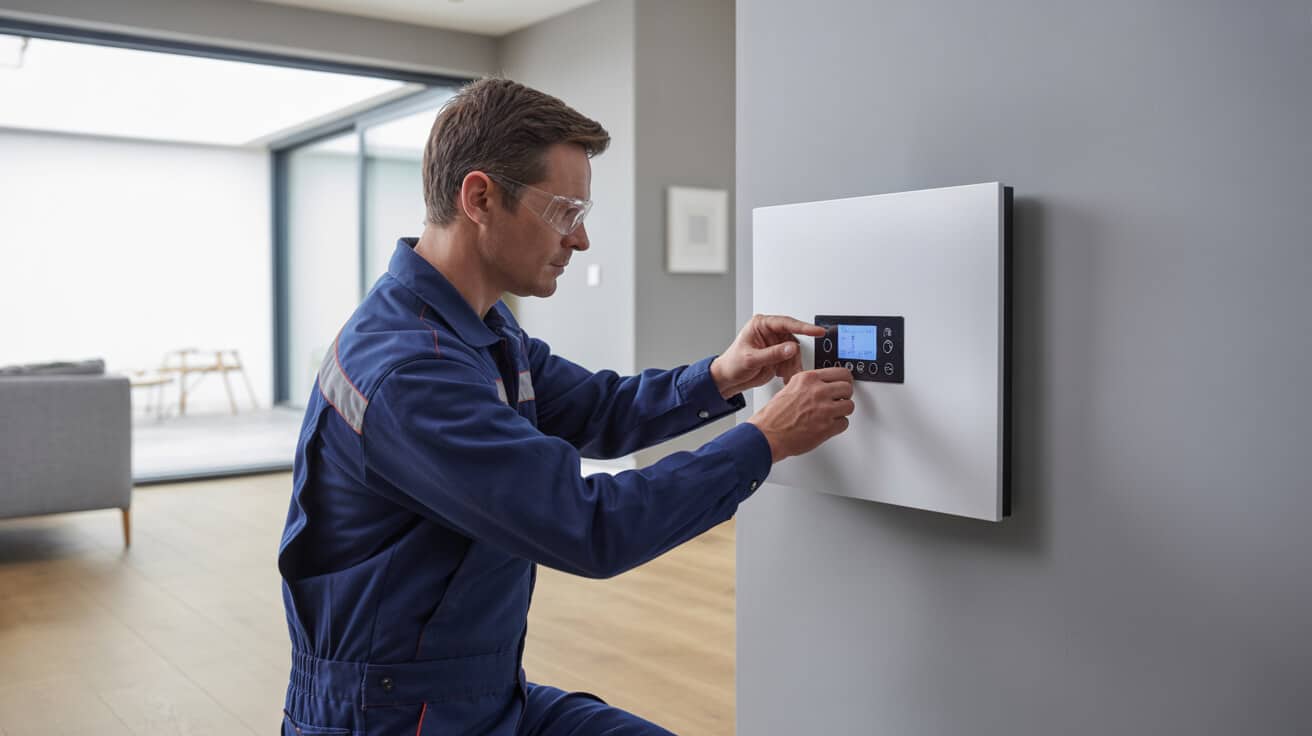
Upgrades and repairs aren’t just about fixing what’s broken—they’re the route to lower bills, growing eligibility for grants, and newer compliance brackets that make your property more valuable and easier to let or sell.
When and What to Upgrade
- Old boilers: Pre-2005 models lack condensing capability—upgrade on cashflow, not crisis.
- Lax service history: If the paperwork is spotty, a full professional inspection is your best investment.
- Dysfunctional or out-of-date controls: Smart thermostats and zone controls don’t just offer comfort—they unlock savings and grant potential.
- Odd noises or patches of cold: Often, this means sludge, air, or scaling that demands a powerflush or targeted fix.
Major Grants and Regulatory Schemes
- Boiler Upgrade Scheme (BUS): Subsidises approved heat pump installations on EPC-rated properties. Must be able to supply paperwork and meet regulator demands.
- ECO4 Scheme: Targets older homes, assists with efficiency upgrades for qualifying properties and owners—think insulation, smart controls, and renewables.
- Documentation is mandatory: Every grant or rebate will demand solid paperwork—robust “house files” pay twice.
“Many grants, rebate programmes, and EPC score requirements change annually—acting early with the right paperwork maximises both savings and flexibility.”
Leave a Paper Trail for Future Proof
Every upgrade—model, serial, installer number, picture—goes into your digital logbook. Losing track costs more than you think.
Smart moves today mean lower bills tomorrow and smoother upgrades when rules or needs inevitably change.
How Can You Maintain Your Heating System and Avoid Emergencies All Year Round?

The secret to a quiet, efficient, crisis-proof heating system isn’t a case of luck. It’s a case of better routines, better documentation, and keeping your engineer (not your insurer) on speed dial.
“Routine beats repairs—tracking, checking, and communicating system health avoids panic and unexpected costs.”
The Essential Year-Round Maintenance Routine
- Annual engineer check: For every property—warranty, safety certification, and legal compliance depend on it.
- Digital record-keeping: Scan or photograph every receipt, cert, and upgrade. Store in the cloud or email—for you and any future buyer or tenant.
- Test everything, every year: CO alarms, thermostats, radiator performance—all should be checked at the start of autumn.
- Bleed radiators annually: Air collects over time; cold spots this autumn mean a quick fix now or a costly one later.
- Emergency “cheat sheet”: Share with tenants, agents, or housemates—shut-off instructions, contractor contact, and latest service dates.
Proactivity Is the Real Superpower
Don’t wait for a “sound” or error code—sort small issues before they dominate. Regular, scheduled checks do more than meet minimum standards—they build a confident, repair-resistant household.
For portfolio landlords or managing agents, centralising reminders and service logs also blankets you against compliance gaps, keeping properties to spec and tenants stress-free.
Why Call Plumbers 4U for Your Heating System Checks and Ongoing Care?
Getting a heating handover right is more than a box-tick. It’s a powerful signal to your family, tenants, or board that you’re serious about asset protection. Plumbers 4U positions your system for reliability and clarity—crucial in a world where first impressions and regulatory proof often decide outcomes.
What Sets Plumbers 4U Apart
- All-round certifications: Gas Safe, WRAS, WaterSafe, G3, CSCS—so you never worry about missing compliance or ineligible upgrades.
- Transparent, honest pricing: Quotes are itemised, photos provide proof at every phase, and you’re never left in the dark; ideal for anyone managing assets or facing insurance queries.
- Client-first practice: No pressure for add-ons, ever. Engineers are trained to explain, walk you through results and guarantee your peace of mind matches the warmth in your pipes.
“The best way to reduce risk is to rely on a partner who sees what others miss, explains every step, and stands behind the paperwork.”
Ongoing Reliability: Confidence Baked In
Expect reminders set for you—never miss a scheduled service or required check. Digital logs are shared, so compliance is bulletproof and future re-sale or letting friction-free.
From your very first property to large portfolios, local authority legs, or high-turn homes, Plumbers 4U secures your comfort, your investment, and your legal footing.
Book Plumbers 4U Today
The difference between a comfortable first winter and a frantic search for emergency fixes is preparation—anchored by trusted, proven engineering. Plumbers 4U is the only UK provider with top-flight credentials across WRAS-approved works, Gas Safe, and WaterSafe registration. Our promise: every system is inspected to code, every quote is transparent, and every job is logged so you’re never left guessing. Homeowners, agents, landlords, buyers—now is the time to take professional control of your heating destiny, before the cold exposes hidden flaws.
Before cold weather, before tenant move-ins, before something goes wrong—take control and secure your heating today with Plumbers 4U.
Frequently Asked Questions
What risks do homeowners and landlords face if heating compliance lapses during a property handover?
As soon as ownership changes hands, all legal responsibility for heating system safety, compliance, and documentation jumps to the new titleholder—there’s no grace period. If the required compliance records aren’t updated and available, you could face insurance refusals, nullified appliance warranties, or even fines as a landlord under UK housing law. Gaps in CP12 Gas Safety records, outdated unvented cylinder G3 logs, or missing Benchmark files turn into your problem instantly—even if the shortfall happened before you took over.
Compliance isn’t retroactive—your file must be watertight the moment the keys cross palms.
Every mortgage lender and insurance policy checks the “at time of incident” legal owner for liability. If an accident occurs, the lack of up-to-date certifications is pinned on you, not the seller. This risk holds for both private purchases and tenanted lets; landlords who fail to re-certify could forfeit rent insurance or face prosecution for tenant endangerment.
How do legal handover pitfalls cause setbacks?
- Service history gaps can drive down property value, as buyers spot leverage for price cuts or walk away.
- Fines and claims delays hit landlords who miss CP12, G3, or EPC requirements.
- Loss of appliance warranty is automatic if Benchmark books or service logs are incomplete.
Plumbers 4U specialises in property handover audits, bringing your legal and technical file up to standard before your first bill lands or your insurer asks tough questions.
Which property heating documents and compliance proof are non-negotiable for a sale or rental?
The core UK heating compliance file consists of the CP12 Gas Safety Certificate (legally required for rental and often for sales), a G3 certificate and log for unvented cylinders, the Benchmark logbook for boilers, and a stack of maintenance receipts for all key equipment. For homes with heat pumps, solar, or other renewables, MCS accreditation documents and any grant award letters (like BUS or ECO4) are crucial for warranty, insurer payout, and grant eligibility.
Without original or updated certificates, warranty disappears and major buyers step back—paperwork is leverage, not just admin.
Even if a seller offers verbal assurances, only written, in-date proof is valid at exchange. Letting agents and managing agents are advised to request digital versions of all compliance documents for their files; missing documentation during due diligence will slow or halt a transaction or tenancy agreement.
Which files do auditors and buyers demand?
| Document Type | Required For | Problem If Absent |
|---|---|---|
| CP12 Gas Certificate | Sales, Rentals, Insurance | Uninsurable, legal risk, fines |
| G3 Cylinder Log | All unvented HW installations | Uninsurable, breach of Building Regs |
| Benchmark Logbook | Boiler warranty, sale, upgrade | No manufacturer cover, buyer doubt |
| MCS/Grant Docs | Renewables, grant claims | Loss of funds, resale barrier |
| EPC Certificate | All property transactions | Blocked sale, non-compliance |
Fast access to a complete compliance file ensures fast sales, quicker re-lets, and smooth insurance claims when speed matters most.
What’s the step-by-step for verifying heating safety and compliance after you move in?
Confirming real-world heating safety and legality after taking possession starts with paperwork, then moves to practical tests. First, collect every heating system document—CP12, G3 log, Benchmark logbook, plus any grant certifications. If anything is missing, book a full inspection before winter arrives. Next, check all controls work (thermostats, programmer, radiator valves), then test system pressure at the boiler; unexpected drops often mean leaks or airlocks needing urgent attention.
carbon monoxide alarms must be in the right rooms and test without error. Physically inspect exposed pipework for signs of corrosion, lagging gaps, or patch repairs. Run the system for 15 minutes on both heating and hot water settings; listen for persistent noise, catch uneven radiator warmth, and snap photos of the serial plate, pressure gauge, and current control setup. Digital and photo evidence makes future claims, warranty calls, or dispute resolution far smoother.
Heating security isn’t a feeling—it’s a documented, tested fact. Your first cold snap isn’t the time to find a paperwork gap or a noisy valve.
Schedule new safety checks right away for any uncertainty, and keep all new certificates together—Plumbers 4U recommends uploading digital copies to your asset log for future insurance or sale needs.
How do missing heating documents create complications for insurance, warranty, or property sales?
Missing, outdated, or mismatched certification is a direct block to insurance payout, manufacturer warranty claims, and even simple sales—because every risk and liability reverts to whoever owns the deed. For landlords, this exposes you to Housing Act fines and denial of property insurance claims (insurers require a full, timely certificate stack at the date of incident).
When buyers or letting agents find patchy logs or a lack of credible servicing, they lower offers—or, for rentals, may walk away entirely. Service log gaps also make lenders and grant bodies nervous, especially with greener upgrades subject to government audit (BUS, ECO4). Replacement documentation, while sometimes possible, could require costly re-tests, consultant audits, or days of lost sale time.
What paperwork gaps matter most and why?
| Document | Missing Impact | Recovery Route |
|---|---|---|
| CP12 Certificate | Void insurance, fines | New inspection + report |
| Benchmark Logbook | Warranty refusal, buyer objection | Engineer-generated replacement |
| G3 Log/Cert | No cover, legal non-compliance | Qualified engineer re-cert |
| Service receipts | Grant refusal, claims denied | Engineer copy or recent report |
Plumbers 4U excels at recovery audits and bridging documentation gaps so transactions, claims, and asset protection don’t hit costly snags when timing matters.
Which factors drive ongoing running costs—and what’s the real difference between gas, electric, oil, and heat pump heating?
Your heating’s bottom line isn’t just about the system’s fuel type, but how it’s serviced, insulated, and controlled. Gas boilers (if serviced annually) average £800–£1,200 per year, but skipping a yearly Gas Safe check risks insurers declining any incident. Electric heating offers simpler hardware but typically costs up to double; panel and storage heaters often exceed £1,500 each winter in typical homes.
Oil and LPG heat often bring hidden environmental compliance costs (spillage, leak mitigation) and need an OFTEC-certified annual service—a missed check could mean massive clean-up expenses. Modern air or ground source heat pumps cut bills to £500–£1,000 for most homes and last 15+ years with proper routine; however, missing an annual MCS service could wipe out any warranty or BUS grant insurance.
The cheapest heating is almost never the system without the right check-list—let a minor annual check lapse, and the ‘bargain’ becomes a financial weight.
Service Cost & Lifetime Table
| System Type | Yearly Run Cost | Audit/Service Frequency | Major Risk If Skipped |
|---|---|---|---|
| Gas Boiler | £800–£1,200 | Annual (Gas Safe) | Insurance/refusal, repairs |
| Electric | £1,500–£2,200 | Every 2 years/DIY ok | High bills, cold spots |
| Oil/LPG | £1,200+ | Annual (OFTEC/Engineer) | Environmental fines, leaks |
| Heat Pump | £500–£1,000 | Annual (MCS/Log) | Efficiency drop, claim fail |
Ask Plumbers 4U for a running cost analysis—paired with a service plan and compliance log, it insulates both your comfort and your future sale price.
Which heating upgrades and government-backed funding accelerate efficiency, legal compliance, and asset value?
Upgrades to condensing boilers (now minimum legal for most replacements), smart digital controls, advanced insulation, and renewable energy all drive down bills—while also refunding some or all outlay through grants like the Boiler Upgrade Scheme (BUS) or ECO4. Condensing boilers reach over 92% efficiency, immediately cutting waste, and are mandatory as of 2005 in replacement instals.
Smart controls (Hive, Nest, Tado) often slice 10–15% off bills, enable more granular record-keeping for compliance, and appeal to modern buyers during resale. Upgrading insulation (loft, pipework, cylinder jackets) keeps more heat inside, boosting your property’s EPC score and unlocking grant eligibility (minimum EPC is now common for most grants). The BUS and ECO4 can reduce capital outlay by up to £7,500, but only if you use MCS and TrustMark approved trades and keep paperwork locked down.
Upgrades aren’t just cost-cutting—they’re compliance shields. The right move makes buyers and insurers say ‘yes’ without hesitation.
Table: Top Heating Upgrades & Relevant Grants
| Upgrade/Grant | Efficiency/Bill Impact | What’s Needed |
|---|---|---|
| Condensing boiler | 92%+, £200+ annual save | Gas Safe instal + Benchmark |
| Smart controls | 10–15% bill cut, comfort | App control + digital records |
| Loft/pipe lagging | Up to £200/yr efficiency | DIY or pro, EPC photo proof |
| BUS/ECO4 grant | Up to £7,500 instal aid | MCS/TrustMark, EPC, audit docs |
| Cylinder jackets | Insurance/compliance | Simple fit, update asset log |
Plumbers 4U offers not just technical upgrades but full documentation, grant navigation, and seamless compliance—future-proofing your home, comfort, and legal file for every owner and insurer ahead.

